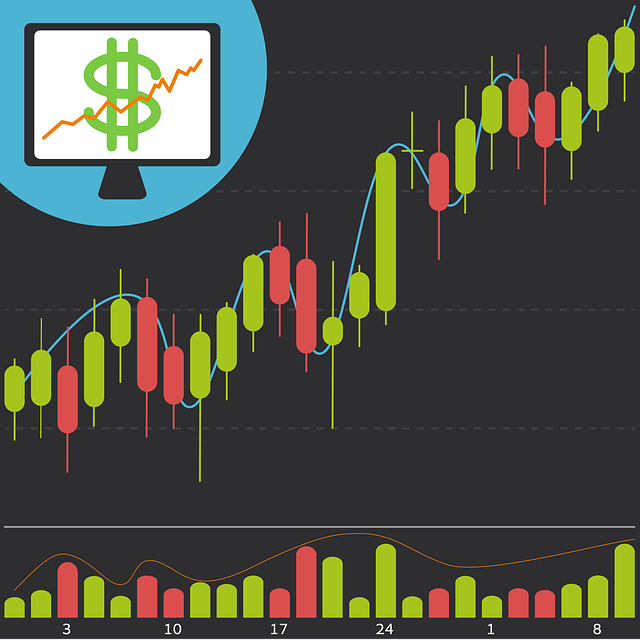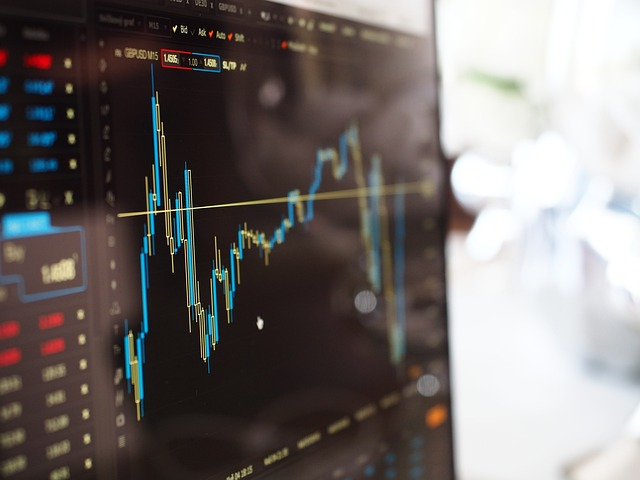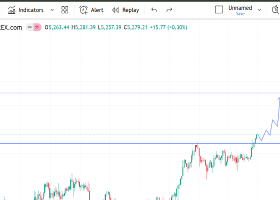
From Novice to Pro: A Comprehensive Guide to Forex Trading for Beginners
From Novice to Pro: A Comprehensive Guide to Forex Trading for Beginners

Forex trading, also known as foreign exchange trading, is the buying and selling of currencies on the foreign exchange market.
It is the largest and most liquid financial market in the world, with an average daily trading volume of over $5 trillion.
Forex trading allows individuals and institutions to speculate on the price movements of various currency pairs, such as EUR/USD or GBP/JPY.
Understanding the basics of Forex trading is crucial for anyone looking to enter this market.
Without a solid foundation of knowledge, it can be easy to make costly mistakes and lose money.
By understanding the fundamentals of Forex trading, you can develop effective strategies, manage risk, and make informed decisions.
Getting Started-
Open a Demo Trading Account - IC Markets
To get started with Forex trading, you will need to set up a trading account with a reputable broker.
There are many brokers to choose from, so it's important to do your research and find one that suits your needs.
Look for a broker that is regulated by a reputable financial authority and offers competitive spreads and fees.
Once you have chosen a broker, you will need to fund your trading account.
This can be done through various methods, such as bank transfer, credit card, or online payment systems.
It's important to start with an amount of money that you can afford to lose, as Forex trading carries a high level of risk.
Types of Trading Strategies

There are several different types of trading strategies that traders can use in Forex trading.
Each strategy has its own advantages and disadvantages, and it's important to choose one that aligns with your trading style and goals.
Scalping is a short-term trading strategy that involves making multiple trades throughout the day to take advantage of small price movements.
Day trading is similar to scalping but involves holding trades for longer periods, usually within a single day. S
wing trading involves holding trades for several days or weeks to take advantage of larger price movements.
Position trading is a long-term strategy that involves holding trades for weeks, months, or even years.
Technical Analysis
Technical analysis is a method of analyzing price charts and using various indicators to predict future price movements.
It is based on the belief that historical price data can provide insights into future price movements.
By understanding charts and indicators, traders can identify trends, support and resistance levels, and potential entry and exit points.
There are many popular technical indicators that traders use in Forex trading.
These include moving averages, oscillators, and trend lines.
Moving averages are used to identify the direction of the trend and potential support and resistance levels.
Oscillators are used to identify overbought or oversold conditions in the market.
Trend lines are used to identify the direction of the trend and potential reversal points.
Chart patterns are also an important part of technical analysis.
These patterns can provide valuable information about the future direction of the market.
Some common chart patterns include head and shoulders, double tops and bottoms, triangles, and flags.
Fundamental Analysis
Fundamental analysis is a method of analyzing economic indicators, news events, and central bank policies to predict future price movements.
It is based on the belief that economic factors and news events can have a significant impact on the value of currencies.
Economic indicators, such as GDP growth, inflation rates, and employment data, can provide insights into the health of an economy.
News events, such as interest rate decisions or geopolitical events, can also have a significant impact on currency prices.
Understanding central bank policies is crucial for Forex traders, as central banks have the power to influence interest rates and monetary policy.
Risk Management
Risk management is a crucial aspect of Forex trading. It involves protecting your investment by managing your risk exposure.
By implementing risk management strategies, you can minimize losses and protect your capital.
One important risk management technique is setting stop-loss orders.
A stop-loss order is an order placed with your broker to automatically close a trade if it reaches a certain price level.
This helps to limit potential losses and protect your capital.
Position sizing is another important risk management technique.
It involves determining the size of your positions based on your risk tolerance and the size of your trading account.
By properly sizing your positions, you can ensure that you are not risking too much of your capital on any single trade.
Developing a Trading Plan
Custom forex indicators are not just ordinary tools; they are tailored to meet individual trading needs.
They analyze market data and provide real-time information about potential trading opportunities.
Whether you're a beginner or an experienced trader, these indicators can help you understand the market better and increase your chances of making profitable trades.
Dual Trend Scalper
https://www.mql5.com/en/market/product/59529?source=Site+Profile+Seller
Reversal Signals Scalper Dashboard
https://www.mql5.com/en/market/product/59530?source=Site+Profile+Seller
Scalper Signals Trader
https://www.mql5.com/en/market/product/68316?source=Site+Profile+Seller
Smart Multi Systems
https://www.mql5.com/en/market/product/68318?source=Site+Profile+Seller
Developing a trading plan is essential for success in Forex trading.
A trading plan is a written document that outlines your goals and objectives, as well as your trading strategy.
It helps to keep you focused and disciplined, and provides a framework for making informed trading decisions.
When developing a trading plan, it's important to set clear goals and objectives.
These can be both short-term and long-term goals, such as achieving a certain percentage return on investment or increasing your trading account balance.
Your trading strategy should outline the specific rules and criteria that you will use to enter and exit trades.
It should also include guidelines for managing risk, such as setting stop-loss orders and position sizing.
Keeping a trading journal is also an important part of developing a trading plan.
A trading journal allows you to track your trades, analyze your performance, and identify areas for improvement.
It can help you to identify patterns and trends in your trading, and make adjustments to your strategy as needed.
Choosing the Right Broker
Choosing the right broker is crucial for success in Forex trading.
There are several factors to consider when choosing a broker, including regulation and safety of funds, trading platforms and tools, customer support, and fees.
Regulation is one of the most important factors to consider when choosing a broker. A regulated broker is subject to strict rules and regulations that are designed to protect investors.
Look for a broker that is regulated by a reputable financial authority, such as the Financial Conduct Authority (FCA) in the UK or the Securities and Exchange Commission (SEC) in the US.
Trading platforms and tools are also important considerations.
Look for a broker that offers a user-friendly and reliable trading platform, as well as a wide range of tools and resources to help you analyze the market and make informed trading decisions.
Trading Psychology
Trading psychology plays a crucial role in Forex trading.
It involves managing your emotions while trading, staying disciplined, and avoiding common trading mistakes.
Managing your emotions is one of the most challenging aspects of Forex trading.
Fear and greed can cloud your judgment and lead to impulsive and irrational trading decisions.
It's important to stay calm and objective while trading, and to stick to your trading plan.
Staying disciplined is also crucial for success in Forex trading.
It involves following your trading plan and sticking to your strategy, even when faced with losses or setbacks.
It's important to avoid chasing losses or deviating from your plan, as this can lead to further losses.
Avoiding common trading mistakes is another important aspect of trading psychology.
Some common mistakes include overtrading, revenge trading, and not using stop-loss orders.
By being aware of these mistakes and taking steps to avoid them, you can improve your chances of success in Forex trading.
Backtesting and Demo Trading
Practicing your strategies is essential for success in Forex trading.
Backtesting involves testing your strategies using historical price data to see how they would have performed in the past.
This can help you to identify strengths and weaknesses in your strategy, and make adjustments as needed.
Demo accounts are also a valuable tool for practicing your skills.
A demo account allows you to trade with virtual money in real-time market conditions.
This allows you to test your strategies without risking any real money.
Backtesting and demo trading are important steps in the learning process, as they allow you to gain experience and confidence before trading with real money.
It's important to take the time to practice and refine your skills before trading with real money.
Live Trading
Once you have gained experience and confidence through backtesting and demo trading, you can start live trading.
Live trading involves trading with real money in real-time market conditions.
When live trading, it's important to manage your risk and stick to your trading plan.
This involves setting stop-loss orders, managing your positions, and avoiding impulsive and emotional trading decisions.
It's also important to be patient and disciplined while live trading.
Forex trading is not a get-rich-quick scheme, and it takes time and effort to become a successful trader.
Stick to your strategy and be prepared for both wins and losses.
Continuous Learning
Continuous learning is crucial for success in Forex trading.
The market is constantly changing, and it's important to stay up-to-date with the latest news and analysis.
Reading financial news and analysis can help you to understand the factors that are driving the market and make informed trading decisions.
There are many reputable sources of financial news and analysis, such as Bloomberg, Reuters, and Financial Times.
Attending webinars and seminars is another valuable way to learn and improve your trading skills.
Many brokers and financial institutions offer free webinars and seminars on various topics related to Forex trading.
These events provide an opportunity to learn from experienced traders and industry experts.
Understanding the basics of Forex trading is crucial for success in this market.
By understanding the fundamentals of Forex trading, you can develop effective strategies, manage risk, and make informed decisions.
It's important to take the time to learn and practice your skills before trading with real money.
Continuous learning is also important, as the market is constantly changing.
By staying up-to-date with the latest news and analysis, you can improve your chances of success in Forex trading.


